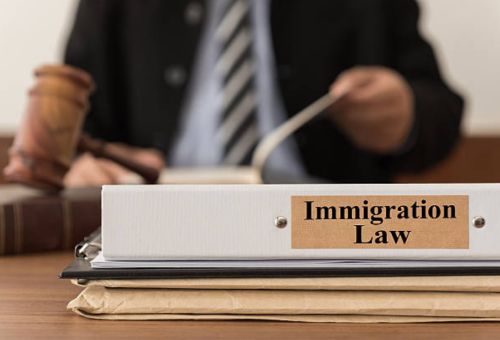

The immigration process in the United States involves several stages, including submitting applications and waiting for approvals. Many applicants face delays during this process, which can create uncertainty. Understanding the reasons behind these delays can help applicants prepare and manage their expectations.
1. High Application Volume and Service Center Workload
One of the main reasons for delays in the immigration process is the increase in USCIS processing times due to a high volume of applications. As more individuals apply for immigration benefits, USCIS service centers face a larger workload. This increased demand can lead to backlogs, causing delays in processing.
Immigration lawyers help applicants by ensuring that all forms are accurately completed and submitted without delay. With their expertise, they can provide guidance on the best ways to handle specific forms and avoid common errors. This proactive approach helps reduce the chances of delays caused by incomplete or incorrect paperwork.
2. Complex Case Requirements
Some immigration cases require extensive documentation and detailed evidence. For instance, family-based visa petitions or employment-based applications often involve complex details that need thorough review. If additional documents are needed or if the evidence submitted is unclear, USCIS may take extra time to process the case.
Experienced immigration lawyers can assist in navigating these complex requirements. They ensure that all the necessary documentation is submitted correctly and promptly. This helps to prevent delays due to missing documents or unclear evidence. In case USCIS requests additional information, an immigration lawyer can manage this process efficiently, reducing any potential delays.
3. Background Checks and Security Clearances
Background checks and security clearances are vital components of the immigration process. USCIS conducts thorough reviews to verify that applicants do not pose a security risk or have any criminal history. While this step is necessary, it can sometimes lead to delays, especially if the checks take longer than expected.
Immigration lawyers guide applicants through the background check process. They provide advice on how to prepare for potential issues that could delay the process. With their help, applicants can address any concerns early on, ensuring the background check goes smoothly and without unnecessary hold-ups.
4. Administrative Errors and Delays in Document Handling
At times, delays are caused by administrative errors, such as misplaced documents or incorrect handling of applications. Given the large volume of applications USCIS processes, errors can happen, leading to delays in processing times. Immigration lawyers play a critical role in reducing administrative errors.
They carefully review all documents before submission to ensure they are complete and correct. If any issues arise during the process, they can take immediate action to resolve them. This helps the applicant avoid delays caused by mistakes or overlooked documents.
5. Delays Due to Policy Changes and System Updates
USCIS regularly updates its policies and systems in response to changing laws and regulations. These updates can sometimes cause temporary delays in processing as service centers adapt to new procedures. When there are significant changes, applicants may experience longer waiting times while USCIS adjusts its systems.
Lawyers who specialize in immigration stay informed about the latest policy changes. Their expertise allows them to ensure that the application is in line with current regulations. By keeping track of any updates, immigration lawyers can help applicants avoid unnecessary delays caused by new policies or procedural adjustments.
The USCIS processing times can be influenced by several factors, including high application volume, complex case requirements, background checks, administrative errors, and policy changes. Working with an immigration lawyer can help minimize these delays. With professional guidance, applicants can ensure that their applications are accurate, complete, and submitted on time, reducing the likelihood of unnecessary hold-ups in the immigration process.


